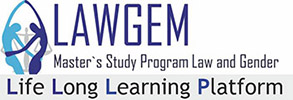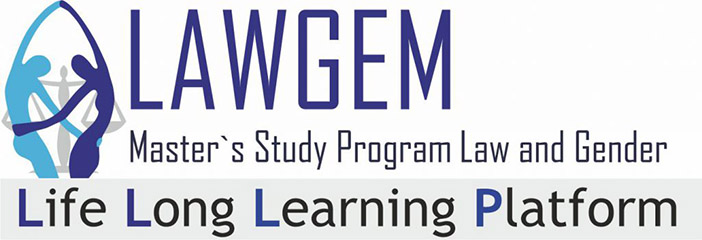Faculty of Law University of Belgrade in the cooperation with the OSCE Mission to Serbia organized the Spring School/Pilot Master – Law and Gender. This Spring School was based on the project LAWGEM and served as a kind of the pilot practicing of the future master`s study program Law and Gender. It covered all courses contained in this master`s study program curriculum, and the reading materials consisted to a great extent of the books published within the LAWGEM project. The School was organized in a hybrid form – in person at the Faculty of Law University of Belgrade and online, with 69 participants (students of undergraduate, master and PhD level), both from Serbia and other countries around the world (Albania, Belarus, Bosnia and Herzegovina, Brazil, China, Croatia, France, Germany, India, Iran, Italy, Montenegro, Russia and Vietnam). It is certain that participants of this School have gained valuable knowledge which will help them on their academic path and in their professional careers. On the other hand, the Spring School represented an excellent preparation of lectures and pedagogic experiences of the scholars from the University of Belgrade Faculty of Law for the future conducting the master’s study program Law and Gender.
Mandatory course on the topic of International and European Law and Gender Equality was held by Full Professor Dr. Ivana Krstić, Associate Professor Dr. Bojana Čučkovic, and Teaching Assistant Marija Vlajkovic. This course consisted of three topics: Traditional Gender-neutral Approach of Public International Law: Its Organizational and Normative Structure, Different Branches of Public International Law from Gender Perspective, and Gender Equality Perspective in EU Law.
During the first lecture, Professor Dr. Čučkovic explained that Public International Law was gender-neutral for a long period of time, and gender issues have been gradually and slowly introduced. The Professor showed the inclusion of gender through three parts, namely, public international law documents, international human rights documents, and international documents that are focused on gender. Professor Dr. Čučkovic also showed the practice of all UN bodies and women’s participation at leading positions in history. Participants had a chance to be engaged in interesting discussion which was based on the interview of three judges of the International Court of Justice and their experience through career.
Second lecture focused on different branches of public international law and inclusion of gender. Professor Dr. Krstić explained that international human rights law is the area of public international law which is most developed from gender perspective. Also, international criminal law recognized rape, sexual violence against men and boys, gender-based crimes affecting children, and the gendered dimensions of slavery, forced marriage, and reproductive crimes as relevant, although international criminal law suffered from gender-neutrality for long period of time. Furthermore, international humanitarian law recognizes protection of women as civilians but requires further steps in increasing the meaningful participation of women in all levels of decision-making related to conflict, security, and peacebuilding. Professor Dr. Krstić raised an issue about international refugee law, due to the lack of gender or sex as a ground for persecution. However, it is recognized within international human rights law that some forms of persecution are gender-related and require special protection for women. Professor exampled that different forms of gender-based violence are now recognized as acts that may amount to persecution under the UNHCR guidelines, CEDAW recommendations, and within the EU. However, further attention is required to provide better protection for women within the refugee law.
Assist. Marija Vlajković delivered a lecture on “Gender Equality Perspective in EU Law” highlighting relevant legal provisions within the EU legal and political system that promote gender perspectives. She presented normative and substantive evolution of gender equality in the EU. By explaining the origins of the gender equality provisions she underlined the role of the Court of Justice as a “game changer” when it comes to gender equality issues in the EU legal system. She also presented representation of female leaders in the EU institutions as well as in the Courts. She discussed with participants regarding the gender parity in the decision-making process in the EU. Finally, she accentuated the importance of gender mainstreaming in the EU and presented Gender Equality Index in order to point out to the key challenges in the future.
International and European Law and Gender Equality 1: Traditional Gender-neutral Approach of PIL
International and European Law and Gender Equality 2: Different Branches of PIL – Gender Perspective
International and European Law and Gender Equality 3: Gender Equality Perspective in EU Law

